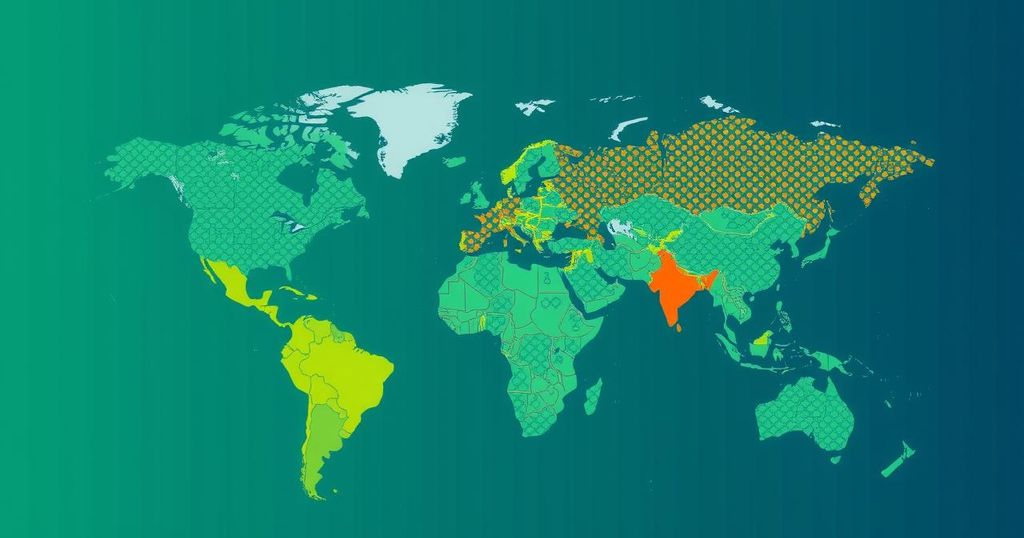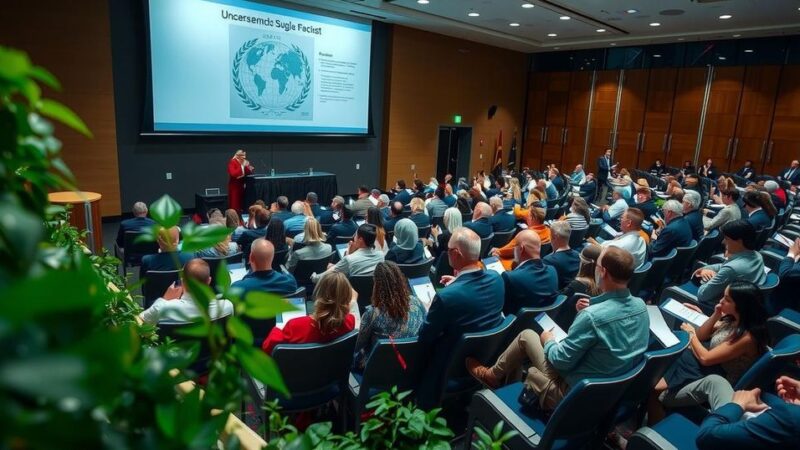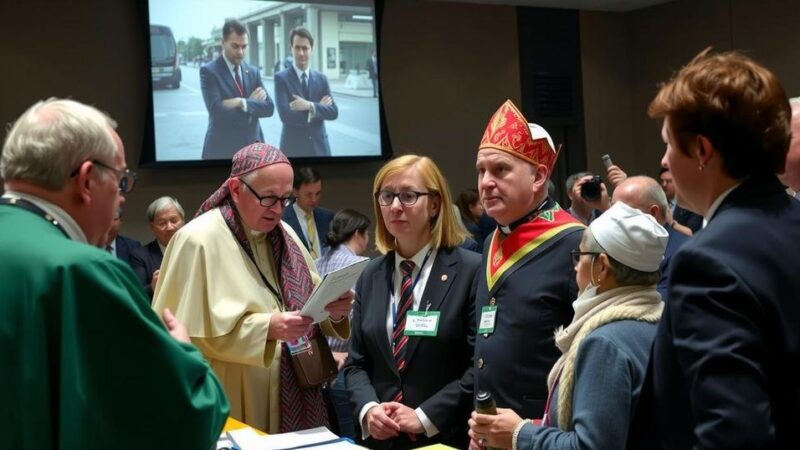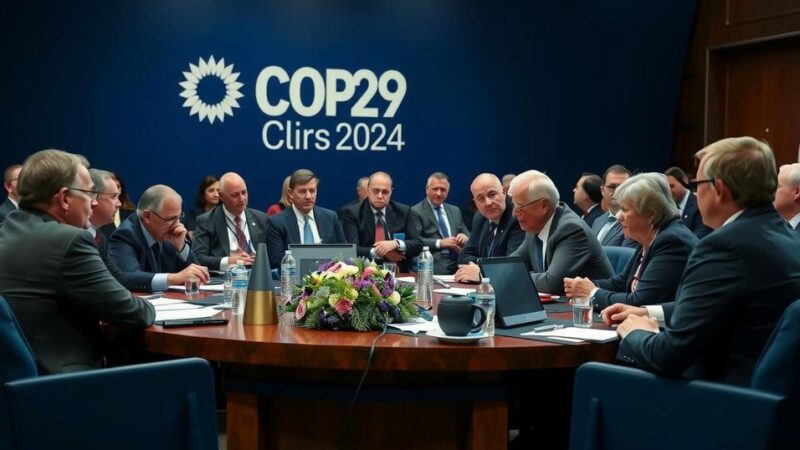The 2024 election year has revealed a weakening global commitment to address the climate crisis, despite ongoing climate disasters. Key electoral victories by climate skeptics signal a shift in political focus towards immediate economic concerns. The recent Cop29 climate summit further highlighted frustrations over the lack of significant climate action from major polluters. While some nations retain commitment to climate initiatives, the overall global momentum appears diminished.
The year 2024 has emerged as a daunting period for global climate action, coinciding with what has been termed by the United Nations as the “biggest election year in human history.” As countries head to the polls, there is a concerning trend evident in many regions: a diminishment in the commitment to tackle the climate crisis amidst escalating natural disasters and record temperatures. This has been particularly exemplified by the victories of climate-skeptical leaders such as Donald Trump, Vladimir Putin, and various right-wing parties across Europe, indicating a shift in political priorities away from climate action towards immediate economic concerns.
Catherine Fieschi, an expert in European politics, underscores the grim reality that climate has taken a significant backseat in political discourse, overshadowed by pressing issues like inflation and energy prices. Despite the stark rise in climate-related disasters—from floods in Europe to extreme heat in Asia and North America—the global response appears muted, showing signs of erosion in public and political will. The once-vibrant discourse surrounding climate change has faltered since peak activism spurred by figures like Greta Thunberg approximately five years ago, as the focus has shifted to maintaining economic stability.
While some nations, such as the UK and France, demonstrate resilient commitments to climate initiatives, the general trajectory suggests a troubling reduction in global momentum to address climate change adequately. Critics like Jan-Werner Müller from Princeton University emphasize a concerning adaptation of center-right politicians who may be yielding on climate action, mirroring the rhetoric of far-right populists, thus exacerbating the situation.
The climate summit, Cop29, which convened in Azerbaijan amidst critiques regarding its ability to foster meaningful discussion on climate policies, highlighted the persistent frustration among leaders and activists regarding the lack of actionable commitments from historical contributors to emissions. As the world transforms into new climatic realities, the outlook for sustained global climate action appears bleak, suggesting that urgent commitments are needed to avert further deterioration of our planet.
The article discusses the impact of the unprecedented electoral year of 2024 on global climate commitments. As a significant portion of the world’s population prepares for elections, data indicates that political priorities have increasingly shifted away from climate initiatives, despite ongoing climate crises. High-profile political figures gaining power, combined with a focus on economic concerns such as inflation, suggest a dangerous trend that could hinder progress in addressing climate change effectively.
In summary, the electoral landscape of 2024 poses serious challenges to global climate action, as exemplified by the political victories of climate skeptics and the prioritization of economic concerns over environmental issues. Although there are pockets of hope in certain nations maintaining their commitment to climate initiatives, the overall momentum toward climate action is waning, exacerbated by significant challenges at international climate summits. Urgent collective action is required to realign political priorities with the pressing need to confront the climate crisis.
Original Source: www.theguardian.com






